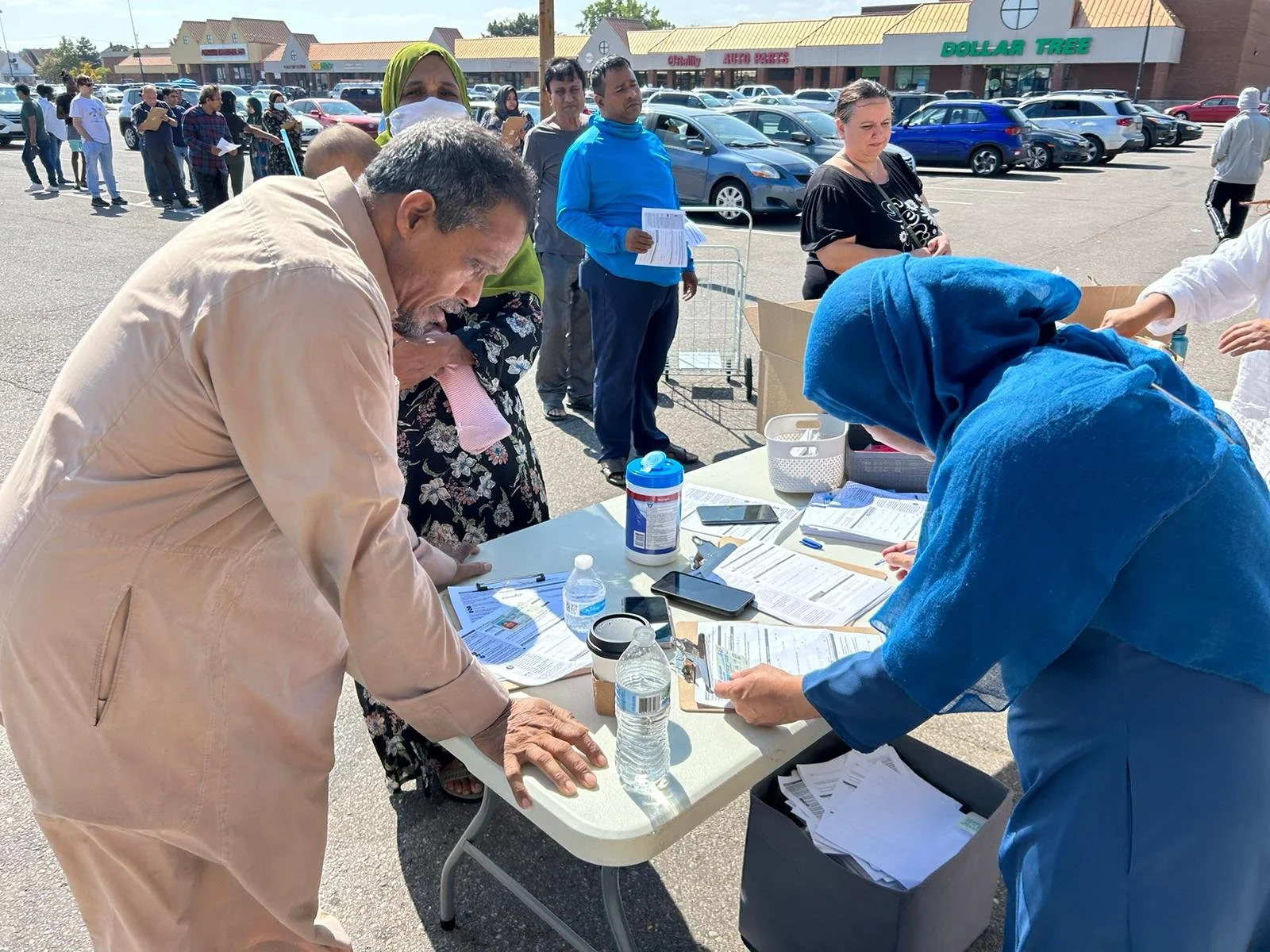Michigan Voter Guide
Three Ways to Vote
Early Voting
All communities are required to open early voting for at least 9 consecutive days before Election Day. The polls must be open at least 8 hours each day, but some communities will have early voting for additional days and hours. Some cities may open early voting for additional days. To find out when and where early voting is available to you, visit mi.gov/vote. Find out more information about early voting here.
Vote by Mail
There are now two options to vote by mail. Voters can request an application before every election or be added to the Permanent Ballot List to automatically receive a ballot before every election.
Vote on Election Day
Polls are open from 7am to 8pm. Visit mi.gov/vote to find your designated precinct. Some states, like Michigan, require a valid photo ID before you cast your ballot, or else you will cast a provisional ballot. You can still vote on Election Day without an ID if you sign a form called an affidavit, a written statement voluntarily made under an oath or affirmation.
Know Your Voting Rights
-
You are a U.S. citizen.
You have been a resident of a city or township in Michigan for at least 30 days (or will be by Election Day).
You are at least 17.5 years old and will be 18 years old by Election Day.
You are not currently serving a sentence in jail or prison.
-
Fourteen days before the Election, you can register to vote:
Online at michigan.gov/voterregistration (if you have a valid Michigan driver’s license or state ID)
At a Secretary of State branch office.
At your city or township clerk’s office or your county clerk’s office.
At any state agency that provides public assistance or services to people with disabilities.
By mailing in a completed voter registration application postmarked no later than the fifteenth day before the election.
Through a voter registration drive.
After that, you have one way to register to vote:
Visit your city or township clerk’s office and provide “proof of residency.”
-
Spanish: Colfax Township, Fennville
Bengali: Hamtramck
Arabic: Hamtramck, Dearborn
If you do not read or write English and a ballot is not available in your language, you have the right to assistance from anyone you choose. However, the person cannot be your employee, an agent of your employer, or an officer or agent of your labor union.
You can apply for an Absentee Ballot in Spanish, Bengali, Farsi, Arabic, in large print, or you can request an electronic ballot (for voters with print disabilities). Visit our Voter Registration Resource Guide to find out how.
-
You have the right to vote independently using an accessible voting machine and the right to assistance from the election officials.
Ask the election officials for instructions on how to use the voting equipment or for assistance at any time, even after you’ve entered the voting booth.
If you are blind, disabled, or unable to read or write, you have the right to assistance from anyone you choose as long as they are not your employer, an agent of your employer or an officer or agent of your labor union.
You can also call the multilingual voter assistance hotline: 1-888-APIA-VOTE (1-888-274-8683)
-
At the polls, you’ll be asked to show ID when you check-in to vote. However, even if you don’t have one, you can still vote.
If you do not have a photo ID, you will be asked to sign a form called an affidavit which will allow you to vote on Election Day.
Acceptable forms of identification:
Michigan driver’s license or state ID
Driver’s license or personal identification card issued by another state
Federal or state government-issued photo identification
U.S. passport
Military ID with photo
Student identification with photo from a high school or accredited institution of higher learning
Tribal identification card with photo
-
Find your polling location here.
You can also check your registration status, view a sample ballot, track your absentee ballot, and more!
-
You can track your absentee ballot and application at the Michigan Voter Information Center michigan.gov/vote.
-
Polls are open from 7 a.m. to 8 p.m. local time on Election Day. You have the right to vote if you are in line by 8 p.m.
-
Tell a poll worker immediately. If the poll worker is the problem, or they don’t address the problem, call your city or township clerk. If the city or township clerk doesn’t address the problem, call the nonpartisan Election Protection Hotline:
(866-OUR-VOTE).
-
Step 1: Ask to be sworn in by the poll worker;
Step 2: Answer whatever questions are necessary to establish your eligibility to vote; and
Step 3: Vote.
-
“Proof of residency” is a document with your name and current address in the city or township where you live.
Paper or electronic copies of any of the following documents will work:
A Michigan driver’s license or state ID card.
A utility bill.
A bank statement.
A paycheck.
A government check.
Any other government document.
-
If a voter has already voted absentee and wishes to change their vote (because the candidate has dropped out of the race, or for any other reason), a voter can spoil their ballot by submitting a written request to their city or township clerk.
• The voter must sign the request and state if they would like a new absentee ballot mailed to them or if they will pick it up in person at the clerk’s office.
• This request must be received by 5 p.m. the Friday before the election if the absentee ballot has been returned to the clerk.
• An absentee ballot that has not been returned to the clerk may be spoiled in person at the clerk’s office until 4 p.m. the Monday prior to the election.
• If a voter has not returned his or her ballot, the voter can surrender the ballot or sign a statement stating that the ballot was lost or destroyed and vote at the polls. There is no option on Election Day to spoil an absentee ballot that has been received by the clerk.
Common Questions
Understanding how all of the various roles candidates in our political hierarchy work and how that effects you can be tough. We've taken out the guesswork and made a simple list of the positions and what each is responsible for doing.
-
U.S. HOUSE OF REPRESENTATIVES
(435 national total; 14 MI total)
Lawmakers who are elected from all 50 states who come together to make laws and pass the budget for the whole country.
U.S. SENATE
(100 national total; 2 MI total)
2 Senators from each of the 50 states are elected to pass laws and adopt the budget for the whole country.
-
COUNTY EXECUTIVE
Top executive for each County. Responsible for delivering county services, implementing county laws.
COUNTY COMMISSIONERS
Legislators for the various Counties: adopts the budget and enacts ordinances.
CIRCUIT COURT
Circuit Court judges deal with larger civil cases, criminal cases (eg. drugs, violence), and family cases (eg. child custody, domestic violence, divorce).
PROBATE COURT
Probate judges deal with wills and estates - such as what happens when a homeowner dies without a will and there is a question about who now owns the house.
-
DISTRICT COURT
District court judges deal with traffic violations, landlord/tenant issues, lawsuits up to $25,000 and money disputes up to $6,000.
SCHOOL BOARD
Hires the Superintendent, establishes policies for the district, approves the budget, and determines facility needs.






